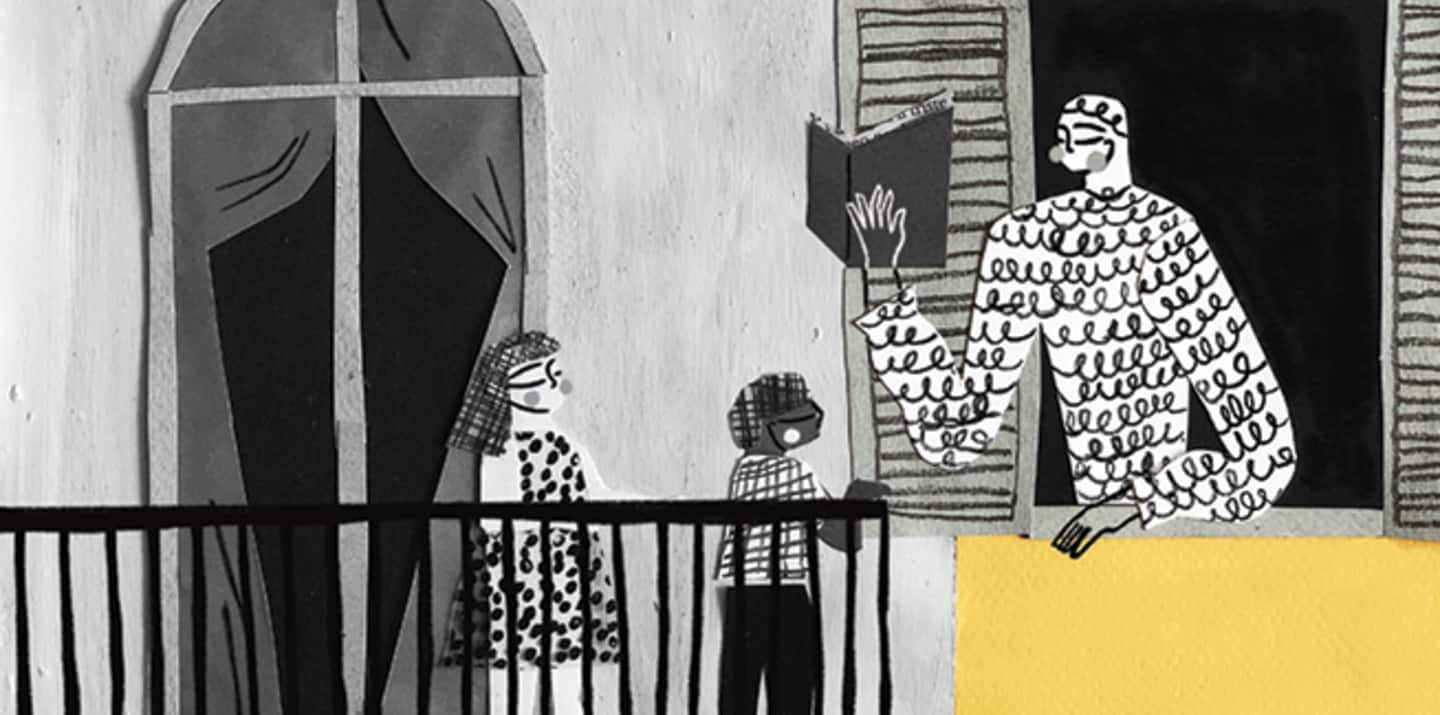
A Poet Misses Those Moments Between Classes
Sometimes, teachers’ most meaningful lessons are taught before or after the school bell rings. How can those be replaced when classes are all online?
These contributing writers share a commitment to the future of education and better systems for kids. We hear in their voices a passion for fostering learning and understanding. The opinions expressed in this Voices piece, represent those of the authors and do not necessarily reflect the views and opinions of Teach For America.
There are certain lessons at school that rely on information, content standards, rules, and objectives. Then, there are the lessons students take from teachers like me: those of us who struggled with high school, ground through community college while living in a single-parent household, and learned the hard way. For us, much of the magic in teaching comes from the experiences we share with students beyond the metrics of a classroom, in the real world, helping our students solve real problems.
In these pandemic days, I miss those “offline” lessons—each teachable moment before school, during lunch, or after class—when we, as teachers, could provide a certain humanity and understanding in unexpected moments.
As a first-generation Mexican American student myself, I had to learn how to be successful. I couldn’t navigate the system alone. Thanks to a handful of highly compassionate teachers, I went from being on the verge of not graduating to breaking through, after years of failure, to attend UC Berkeley. In retrospect, it’s what I learned from my teachers as they shared their own lives and interests that changed me the most, not the course objectives. Because of that, my students know they can expect the same realness from me.
But that was in the good days, when I could give my teens a playful fist bump; when they could stop me in the hallway to share a quick joke; when they would sit in my room for hours, talking about music and movies, unwilling to go home because of whatever stressors awaited there.
I miss those years.
When an over-aged student who had been kicked out of high school could re-enter the same school building he was expelled from, years later, to try to regain his diploma. How that same boy could then seek me out (once it felt like everyone but the janitors had left the building) to open up to me about his life, about how he didn’t have a place to sleep.
Don’t get it twisted: I wasn’t a superman who could miraculously provide a bed. But in those intimate, in-between moments of my formal teaching—when it was nothing more than two people in an empty classroom learning about one another—that’s when teaching could be leveraged to create an unbreakable trust between student and teacher. Only by listening and speaking—without the grammatical rules, without the superimposed weight of systemic expectations and seating charts—could we reach a place of healing, understanding, and visibility.
Now I’m a visiting graduate school professor, teaching poetry to a small, intensive group of dedicated thinkers who are writing books, literally. My job is, in theory, less about interpersonal growth and more about technical mastery. But even as these older students articulate themselves with composed, complex, and interesting perspectives, I find we are unable to truly connect intimately as everyone teleports to class for the Fall semester. Through a digital box on my screen, I can’t see my students’ layers.
Gone are the moments when a student might wander into my class 20 minutes early to chat about his life. Sadly, there are no more opportunities for “Smash Brothers Game Club” or “Latinos Unidos” meetings in my room.
Maybe you’d assume that older students don’t have the time or interest. You’d mostly be wrong. Just like my high schoolers, they’re eager to express who they are, and I want to listen. But now I have to send a barrage of email exchanges simply to confirm if they’d be available to hop on the computer at a designated time and awkwardly converse before we open more tabs and toggle to our next quarantined demand. For me, as for so many teachers, my challenge now is to find ways to achieve those “offline” miracles while staying safely online.
But I want to get back to those pre-COVID-19 moments. I believe we can. With all of the pressure that is placed on educators to constantly work around these changes and “do our jobs,” I want to see the same level of responsibility and commitment reflected in other sectors of our population. I don’t want to see any more videos of gender reveal parties or of large gatherings during a pandemic.
Those irresponsible acts are only postponing what teachers want to get back to: the chance to interact meaningfully with our students, face to face, in those precious moments in between.
Alan Chazaro is a freelance writer and the author of two books of poetry, This Is Not a Frank Ocean Cover Album (Black Lawrence Press, 2019) and the forthcoming Piñata Theory (Black Lawrence Press, 2020). He is a graduate of June Jordan’s Poetry for the People program at UC Berkeley. He teaches graduate writing at the University of San Francisco and runs HeadFake, an online zine about basketball. alanchazaro.com
Sign up to receive articles like this in your inbox!
Thanks for signing up!
Content is loading...


